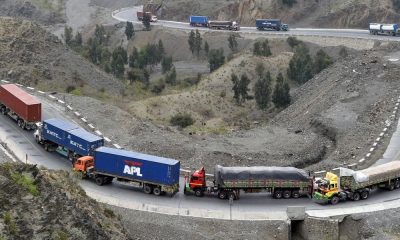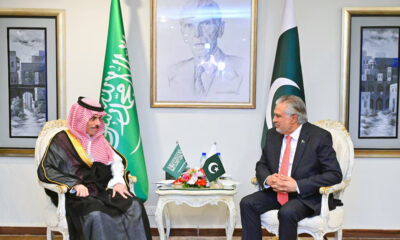Business
Traffic in Suez Canal resumes after stranded ship refloated
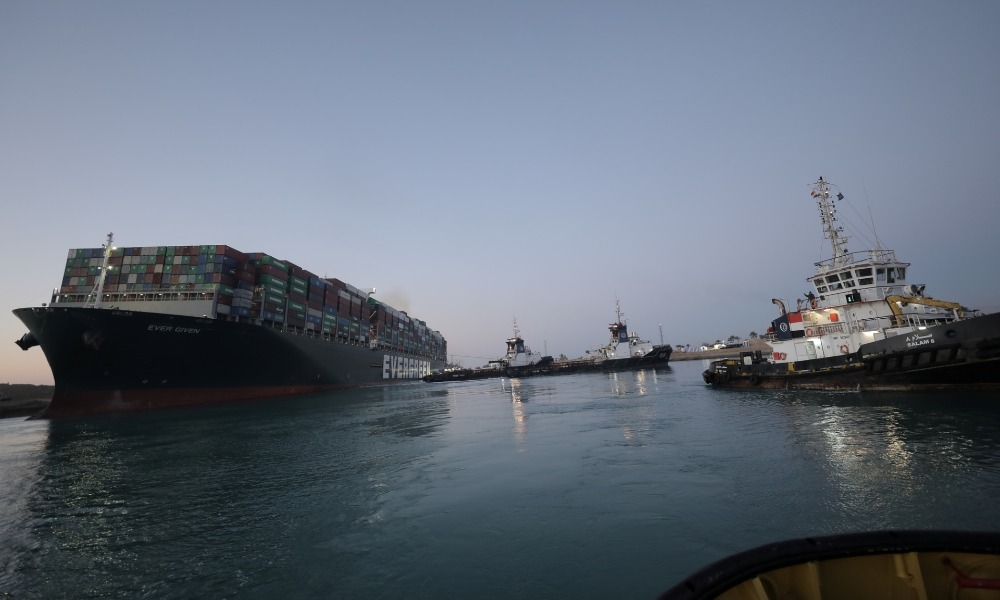
Shipping traffic through Egypt’s Suez Canal resumed on Monday after a giant container ship that had been blocking the busy waterway for almost a week was refloated, Reuters reported, citing the canal authority.
According to the report, the 400-meter (430-yard) long Ever Given became jammed diagonally across a southern section of the canal in high winds early last Tuesday, halting traffic on the shortest shipping route between Europe and Asia.
Live footage on a local television station showed the ship surrounded by tug boats moving slowly in the center of the canal. The station, ExtraNews, said the ship was moving at a speed of 1.5 knots.
“Admiral Osama Rabie, the Chairman of the Suez Canal Authority (SCA), announces the resumption of maritime traffic in the Suez Canal after the Authority successfully rescues and floats the giant Panamanian container ship EVER GIVEN,” a statement from the SCA said.
“She’s free,” an official involved in the salvage operation said.
After dredging and excavation work over the weekend, rescue workers from the SCA and a team from Dutch firm Smit Salvage had succeeded in partially refloating the ship earlier on Monday using tug boats, two marine and shipping sources said.
Evergreen Line, which is leasing the Ever Given, confirmed the ship had been successfully refloated and said it would be repositioned and inspected for seaworthiness.
At least 369 vessels are waiting to transit the canal, including dozens of container ships, bulk carriers, oil tankers and liquefied natural gas (LNG) or liquefied petroleum gas (LPG) vessels, the SCA’s Rabie said.
The authority said earlier it would be able to accelerate convoys through the canal once the Ever Given was freed. “We will not waste one second,” Rabie told Egyptian state television.
He said it could take from two-and-a-half to three days to clear the backlog, and a canal source said more than 100 ships would be able to enter the channel daily. Shipping group Maersk said the knock-on disruptions to global shipping could take weeks or months to unravel.
Egyptian President Abdel Fattah al-Sisi, who had not publicly commented on the blockage, said Egypt had ended the crisis and assured resumption of trade through the canal.
Oil prices were about one percent lower at $63.95 a barrel. Shares of Taiwan-listed Evergreen Marine Corp – the vessel’s lessor – rose 1.75%.
About 15% of world shipping traffic transits the Suez Canal, which is an important source of foreign currency revenue for Egypt. The stoppage is costing the canal $14-$15 million a day.
Shipping rates for oil product tankers nearly doubled after the ship became stranded, and the blockage has disrupted global supply chains, threatening costly delays for companies already dealing with COVID-19 restrictions.
Maersk was among shippers rerouting cargoes around the Cape of Good Hope, adding up to two weeks to journeys and extra fuel costs.
Business
Export volume totals over $140 million in last month of 1402
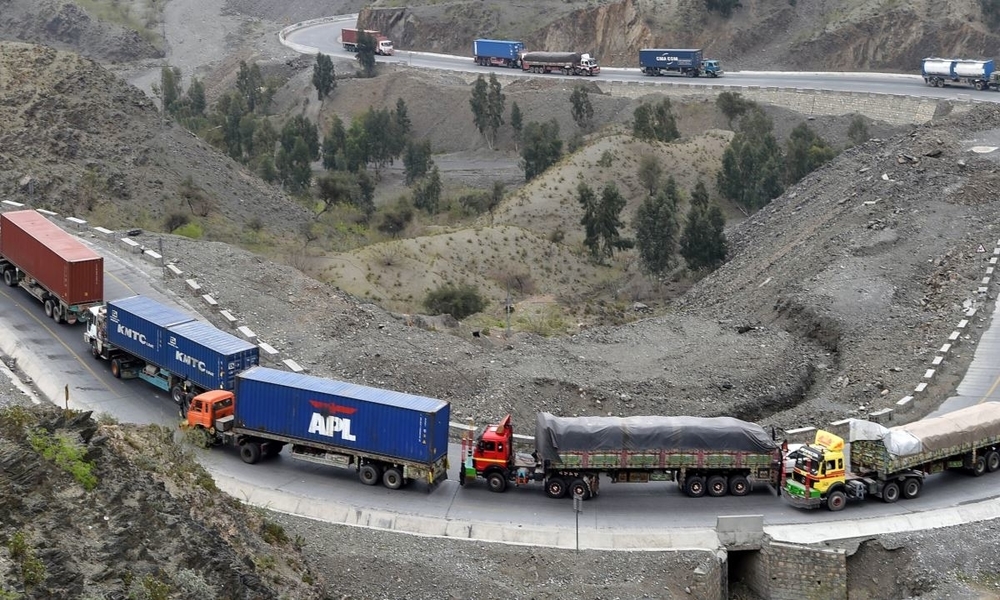
The National Statistics and Information Authority (NSIA) confirmed Tuesday that in the last month of solar year 1402, (March 2024) Afghanistan’s exports totaled $141.1 million and imports totaled $789.6 million.
This was down from $174 million for exports in the same period in 1401. However, imports increased by $99.2 million in 1402, up from $690.4 million.
Most exports in the last month of 1402 went to Pakistan, India and the United Arab Emirates, while in the last month of 1401 exports went to Pakistan, India and China.
Business
Afghanistan-Kazakhstan chamber of commerce opens in Herat
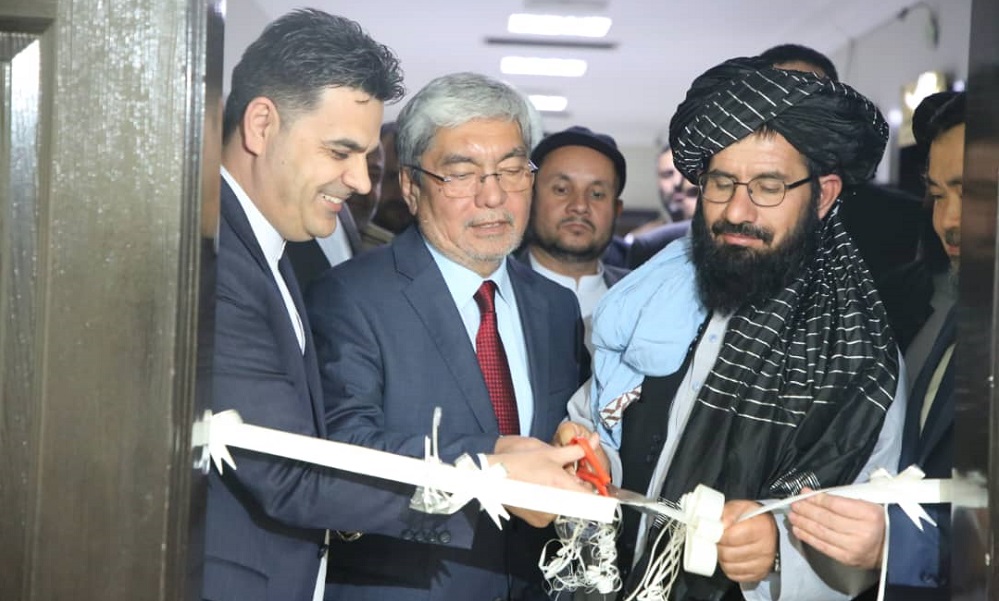
The Ministry of Interior said the governor of Herat province Islam Jar met with Alim Khan Yasin Gildaye, Ambassador of Kazakhstan to Afghanistan, to discuss various issues around trade.
According to the ministry, the two sides discussed the expansion of trade facilities, increasing the volume of trade exchanges between traders of the two countries, reducing customs tariffs, solving the challenges of traders and issuing visas to them.
The Afghanistan-Kazakhstan Chamber of Commerce has been opened in Herat in order to facilitate and increase trade between the two countries.
Business
Afghanistan reaches self-sufficiency in production of 133 items: MoIC
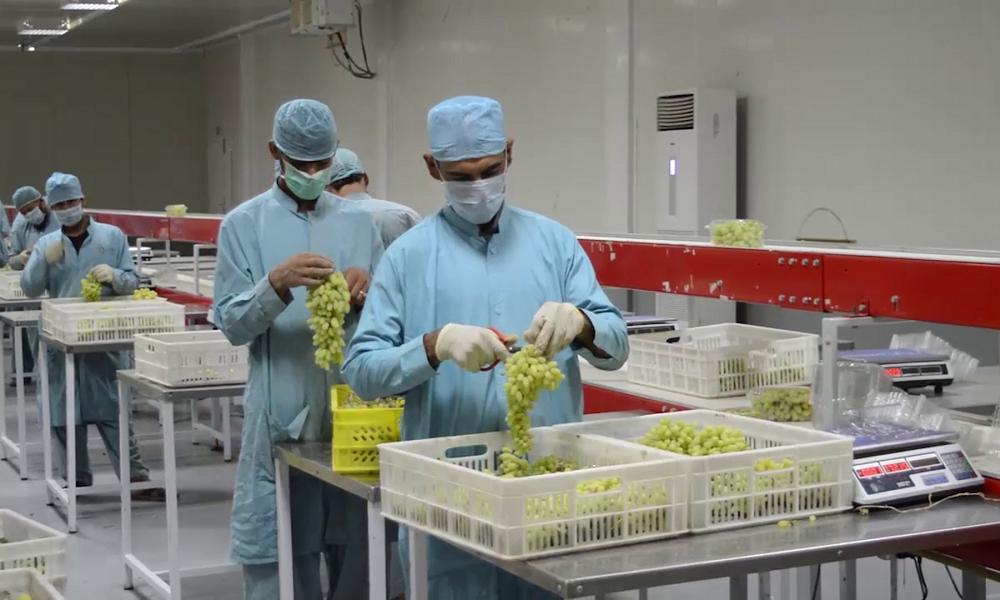
The Ministry of Industry and Commerce (MoIC) says Afghanistan has reached self-sufficiency in 45 sectors and the production of 133 items, and that the ministry is striving to change Afghanistan from an importing country to an exporting one.
The ministry officials said that for this purpose, supporting domestic products and attracting investment is essential.
The ministry’s spokesman Abdul Salam Jawad Akhundzada emphasized increasing the use of domestic goods and products in government and national projects and added that efforts have also begun to find a market for domestic products inside and outside the country.
“We have reached self-sufficiency in 133 items of production, which is 45 sectors, and also we reached the capacity of semi-self-sufficiency in 95 items of production, which is 27 sectors,” he said.
Meanwhile, the Chamber of Industries and Mines (ACIM) says over the past two and a half years, more attention has been paid to the development of domestic production and it is also expanding.
The chamber officials stressed expanding the culture of using domestic products in government projects.
“I think that the government is one of the biggest consumers in the market if it uses domestic products in all its development projects,” said Abdul Nasir Rashtia, a member of ACIM.
Economic experts also said that if the use of domestic products in government projects increases, Afghanistan will quickly move towards economic independence.
-
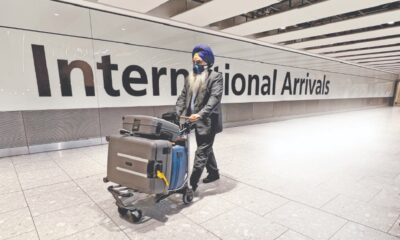
 Regional5 days ago
Regional5 days agoIndian foreign ministry advises against travel to Iran, Israel
-

 Latest News5 days ago
Latest News5 days agoLightning strikes in Helmand kill one, injure three
-

 Latest News4 days ago
Latest News4 days agoTop former US general claims Daesh-Khorasan is ‘on the upswing’
-
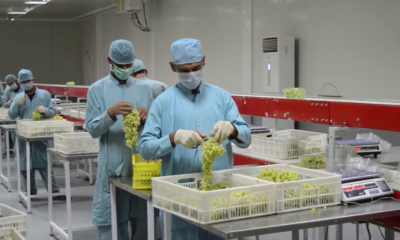
 Business4 days ago
Business4 days agoAfghanistan reaches self-sufficiency in production of 133 items: MoIC
-

 Sport3 days ago
Sport3 days agoACL draw to be broadcast live on ATN channels
-

 Health4 days ago
Health4 days agoMajority of Afghans with mental disorders are women: officials
-

 Regional3 days ago
Regional3 days agoIRGC chief warns of harsher response if Israel attacks Iran
-
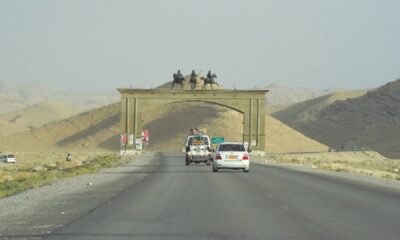
 Regional4 days ago
Regional4 days agoGunmen kill 9 men after abduction in southwest Pakistan








